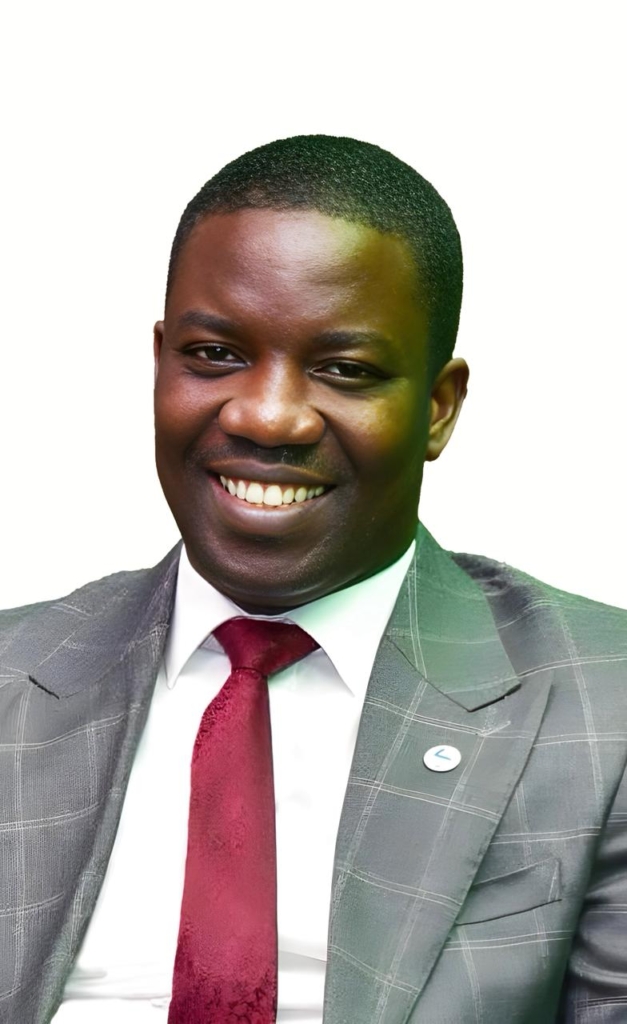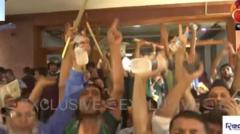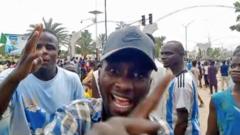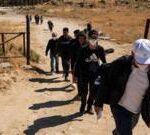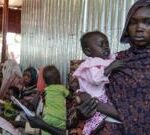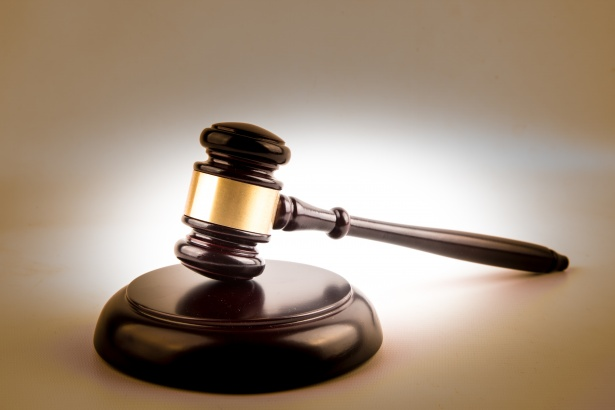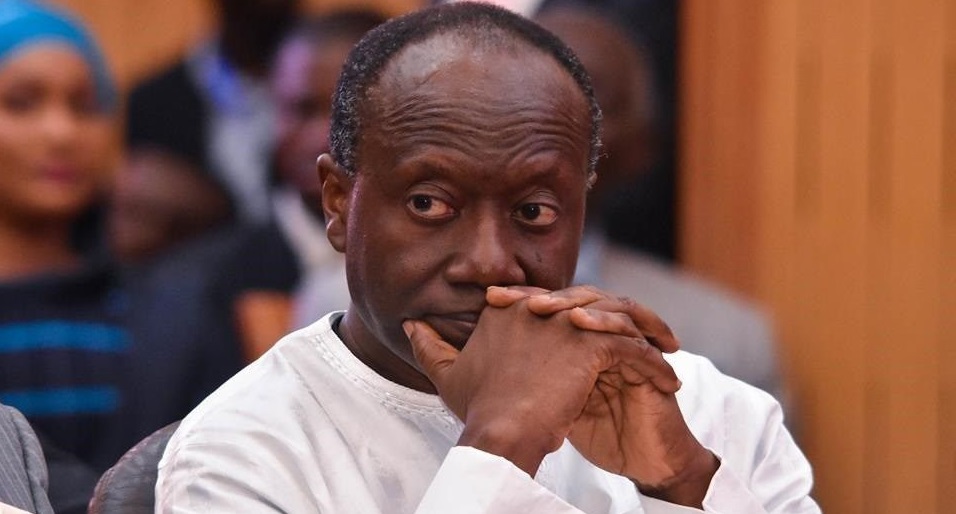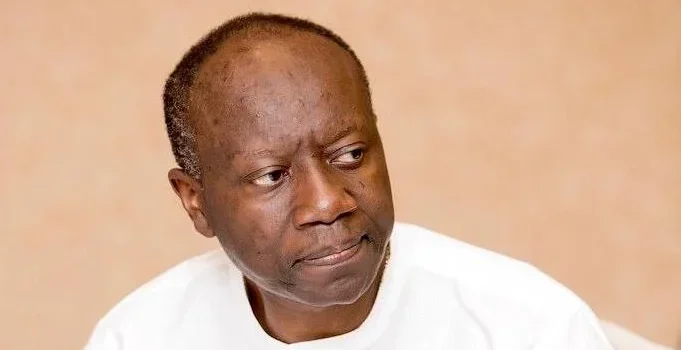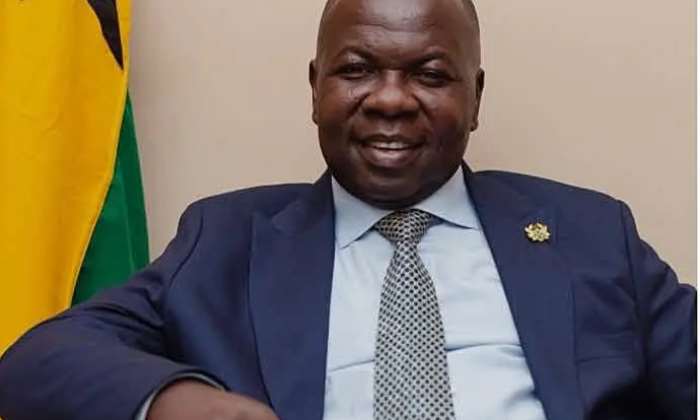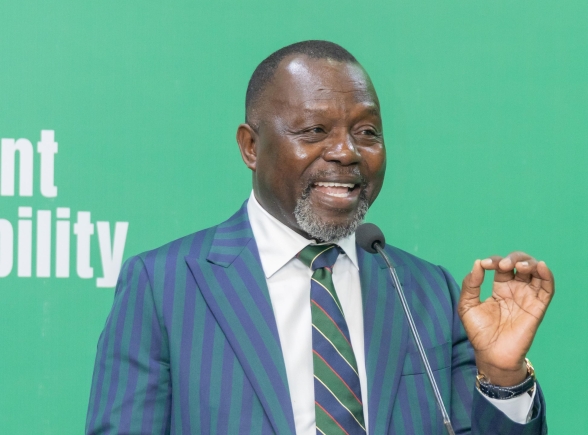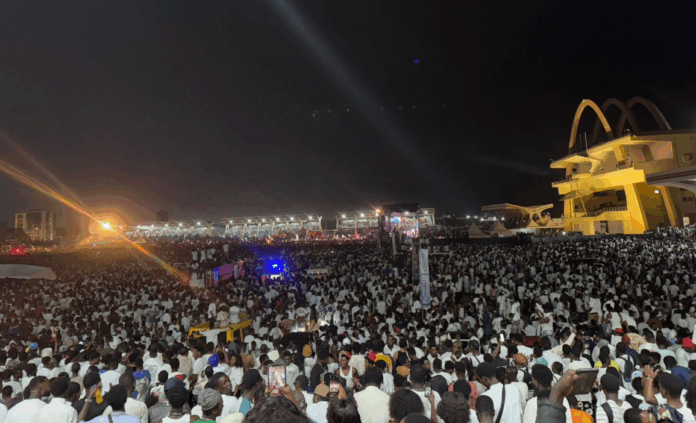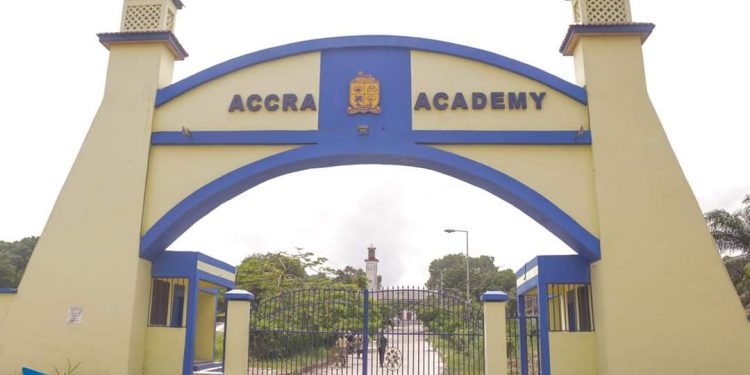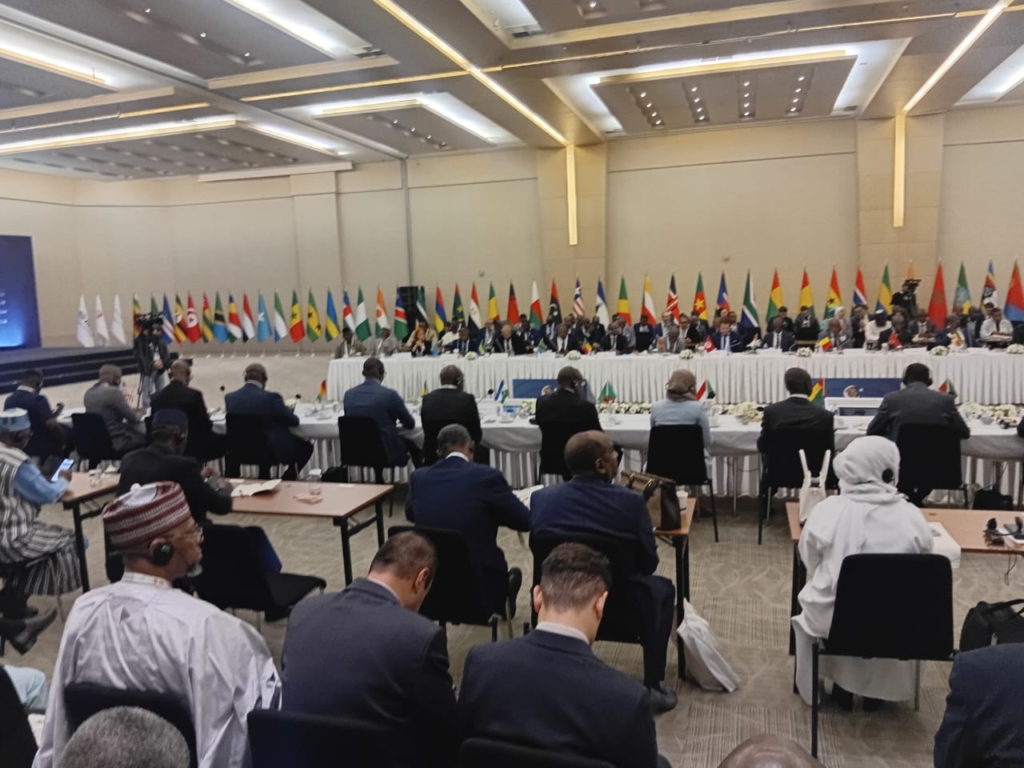A curfew has been imposed in Nigeria’s second-biggest state, Kano, after protests against the high cost of living were “hijacked by thugs” who engaged in widespread looting and the destruction of property, the governor’s office has said.
Kano saw the largest crowds on the first day of nationwide protests that forced many businesses to shut.
Demonstrators in all major cities took to the streets, chanting slogans such as: “We are hungry.”
Police fired live bullets and tear gas – and sprayed hot water – to try and disperse thousands of demonstrators in Kano city. Four people were wounded, and taken to hospital.
Protesters had earlier set alight tyres to make a bonfire in front of the house of state governor Abba Kabir Yusuf.
Looters also broke into a warehouse near his house and people were seen carrying away 25-litre cartons of vegetable cooking oil and mattresses.
The curfew effectively bars protests from continuing, with all residents expected to remain at home.
The last census in Nigeria, in 2006, put Kano state’s population at 9.4 million, with unofficial estimates putting its current population at around 20 million.
The protests – called for 10 days – have been organised via social media and inspired by the recent success of protesters in Kenya who forced the government to scrap plans to increase taxes.
Mr Yusuf’s spokesman said the protests were peaceful in Kano, but the governor was forced to declare a curfew to “restore order and ensure the safety of our communities” because of “rampant looting, destruction of property and violence” unleashed by “thugs”.
On Wednesday night, a court ordered that protesters in the capital, Abuja, keep to the National stadium, which is located on the city’s outskirts.
But after gathering at the stadium’s gate on Thursday morning, the demonstrators – who have also been shouting the refrain “End bad governance” – began heading into the city centre.
This prompted police to fire tear-gas cannisters to try and stop the procession, which affected traffic.
The security forces were deployed at strategic locations within the capital, where even banks are closed, and in surrounding towns.
In Lagos, Nigeria’s economic hub, protesters shouted “ole”, meaning “thief” in the Yoruba language – in reference to President Bola Tinubu and his government.
Many are angered by President Tinubu’s removal of a subsidy on fuel – announced with immediate effect during his inauguration speech in May 2023.
It was aimed at cutting government expenditure, but sent pump prices soaring with a ripple effect on other goods.
“Top on our demand is the subsidy removal. The government should reverse that decision,” Abuja protester Abiodun Sanusi told the BBC.
They also want the government to carry out wide-ranging reforms to the country’s electoral system and the judiciary.
Before this so-called “day of rage”, the government appealed to Nigerians not to take to the streets and give the president time for policies to bear fruit.
But Lagos protester Kingsley Uadiale dismissed this saying, “Hunger is the reason why we’re all here. You can’t beat a baby and ask the baby not to cry.”
If the Tinubu administration wanted patience then, he said, they should lead by example.
“You can’t tell us to be patient and you’re acquiring a private jet,” he said, citing plans to buy new planes worth millions of dollars for Mr Tinubu and his deputy Kashim Shettima.
Dabiraoluwa Adeyinka, an activist also protesting in Lagos, said the aim of the demonstration was to get the price hikes on essential commodities reversed.
“If they don’t yield, we will continue to protest,” she told the BBC
Additional reporting from BBC reporters Zaharadeen Lawal in Kano, Chris Ewokor in Abuja & Simi Jolaoso in Lagos.
Go to BBCAfrica.com, external for more news from the African continent.
Follow us on Twitter @BBCAfrica, external, on Facebook at BBC Africa, external or on Instagram at bbcafrica, external

